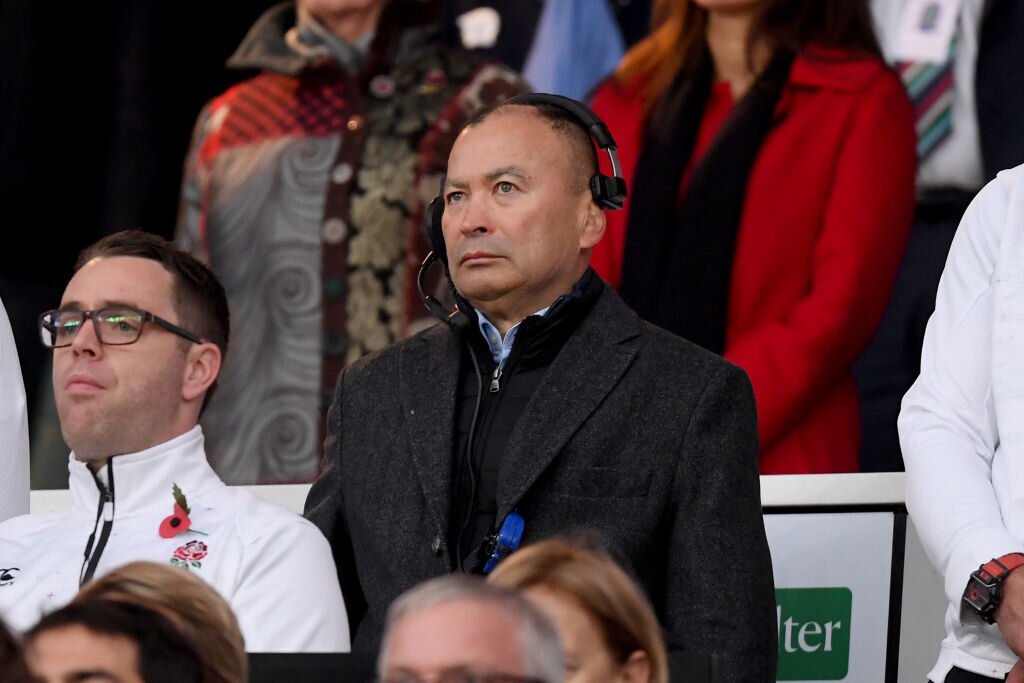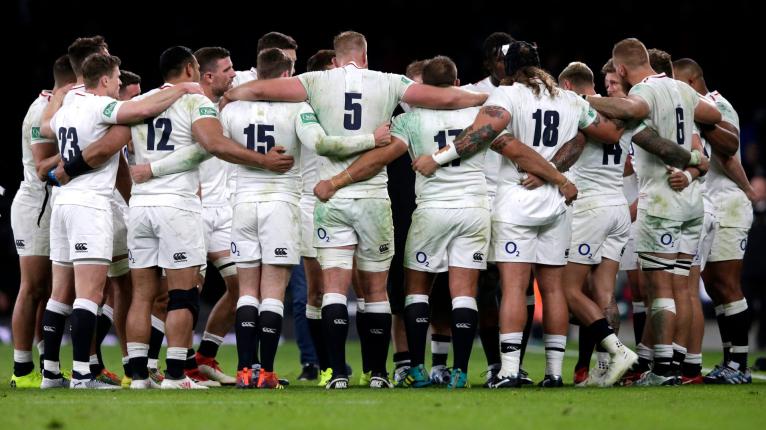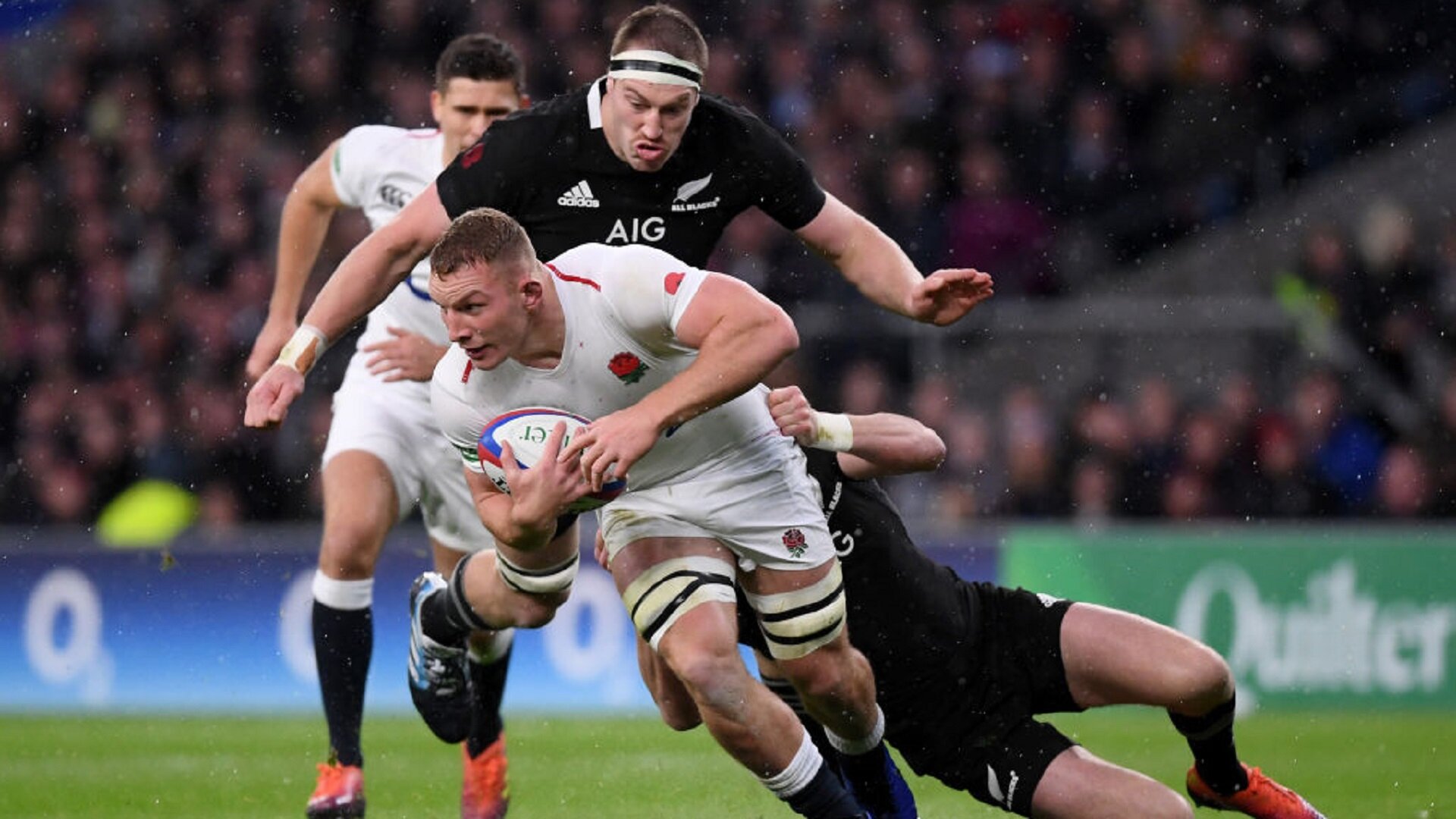Why and how the frustrating loss to the All Blacks is also validation for England

If 2016 was a year of unbridled success for England and 2017 was one of hanging on to the coattails of a reputation which had perhaps surpassed what the side were capable of producing, then 2018 has been one of painful realism.
Three losses and a fifth-place finish in the Six Nations proved to be their worst showing in the competition since Italy were incorporated in 2000 and it was increased to a six-team format. That was then backed up by an unsuccessful tour to South Africa, where they threw away a commanding lead in the first Test and fell to a 2-1 series defeat.
Spirits were lifted somewhat by a 12-11 victory over the Springboks at Twickenham on the opening weekend of November, but it was far from the convincing performance English rugby fans craved and there were more than a few shouts of “lucky” as Owen Farrell’s late tackle went unpenalized and England escaped with bragging rights.
All in all, it made for a distinctly unimpressive record of four wins and five losses on the year, a record which would be extended to six losses when they met the All Blacks at Twickenham on Saturday.
However, defeat wasn’t the only thing England got out of their encounter with New Zealand on a dark and drenching day in south-west London, as validation provided a hard-earned silver lining for the men in white.

For months now, criticism has been poured upon England from all quarters.
Predictable and stagnating. Why hasn’t Eddie Jones hired a full-time attack coach? They’ve peaked under his stewardship.
The depth isn’t there. They might have the numbers, but where’s the quality at international level?
They’re so far behind Ireland, who are now the force in the northern hemisphere, and as Wales, Scotland and France improve, England regress.
The condemnation has been brutal. Some of it unfair, but, equally, some of it right on the nose.
And yet, in defeat against the side which every rugby-playing nation tests and measures themselves against, England, and Jones, have found the validation they needed.

Disappointment and frustration will have reigned in the England dressing room after the game, given the commanding position they put themselves into in the first half, racing out to a 15-0 lead, but it was the performance needed to give their fans a sense of optimism, with less than 12 months until the Rugby World Cup in Japan.
The England players won’t offer up excuses, nor will they point the finger at players missing through injury, but there’s no denying they’ve found their resources depleted.
Both Mako and Billy Vunipola are certain starters and missing through injury, whilst the options behind Mako have taken a shellacking, too, with Joe Marler retiring and then both Ellis Genge and Beno Obano also crocked. Another sure-fire starter in Anthony Watson is missing, as are Jonathan Joseph, Chris Robshaw and Joe Launchbury. For that side to take New Zealand all the way to the line, who are largely at full-strength outside of loosehead and openside, is no mean feat.
They weren’t moral victors, nor will they be happy with the way they let the game go, but it was a validating performance. The players will insist it’s not something that they need and that they always believed that they can mix it with the best when the RWC rolls around next year, but in a game of inches, it’s surprising how influential mental barriers can be, even if you’re unaware you have them. Once the disappointment is dealt with, this should be a performance that frees England up.
Continue reading below…
Watch: Eddie Jones dissects the narrow loss to New Zealand.
In just his second cap, Ben Moon showed that he is a more than viable option at loosehead and Kyle Sinckler’s performance was one of increased maturity. Gone were the needless offside and breakdown penalties, replaced instead by a measured performance at the set-piece and a dominant effort in the loose.
Further back in the pack and there was a coming out party at this level for Sam Underhill. He seemed to relish the challenge the All Blacks posed and in a game that boasted the likes of Kieran Read and Ardie Savea, the Bath man was the pick of the match’s back rowers. From struggling to find a man capable of filling the seven jersey, England are now looking at a dynamic competition between Underhill and Tom Curry that could be one of the recurring stories of English rugby for the next 10 years.
People are quick to point at the correlation between a fit and firing Billy Vunipola in 2016 and England’s success, but there is less appreciation for the correlation between the heights that team achieved and the vein of form that Ben Youngs was in, as well as the complementary skill set offered by Danny Care from the bench. That was back at Twickenham, with Youngs putting on a masterclass in tactical kicking, probing the space behind the defensive line and drawing the New Zealand back three just outside of their 22 and into contestable catches with England’s chasers. He outduelled the world’s best, Aaron Smith, with room to spare.
Henry Slade looked comfortable at 13, Chris Ashton fitted back into the set-up well and Elliot Daly looked assured at the back, after facing a few challenges against South Africa a week before.
Of course, England did lose the game and it is far from positive across the board.
The lineout, which had been flawless in the first half, with Dylan Hartley connecting with Maro Itoje and Brad Shields, disintegrated rapidly in the second, where Jamie George only managed to connect on five of his 10 throws. It sapped all the momentum that England had built at the set-piece and there will undoubtedly be an inquest from forwards coach Steve Borthwick this coming week as to why that happened, with Brodie Retallick having clearly diagnosed England’s plan.
Ball-security wasn’t terrible, but there were times when support at the ruck came too slowly and New Zealand were able to swoop through the likes of Savea and Sam Whitelock. In a back row consisting of Underhill, Brad Shields and Mark Wilson, England were built to be mobile and effective at the ruck and there’s no space for excuses in that area.
The hosts won’t have been happy with the way they finished both halves, either.
The defensive lapse that sent Damian McKenzie scampering over the try line and the subsequent kick out on the full from the restart meant that England went into the half with a 15-10 lead, rather than a 15-0 scoreline. Similarly, with England trailing by a point late in the game, a loose offload from Courtney Lawes, that would have been a tough ask in perfect conditions, let alone the biblical levels of water at Twickenham on Saturday, killed England’s attack and gifted possession back to the All Blacks, who were then able to see the game out.
These are the reasons frustration and disappointment will be the prominent emotions in the England camp, because they have seen an opportunity to record a famous victory slip through their fingers. They had done the hard work and laid the foundations, it was just for the want of a little bit more composure in that second half that they were denied a win.
Validation is a powerful thing, though.
Not only does it give you self-belief, it also reinforces your faith in the process and it’s fair to say that the process has been demanding work this year for the players involved.
England have proven themselves a match for the world’s best. They went toe-to-toe with the All Blacks and came out with credit at pretty much every level, despite having been beaten. The lessons they learned will be invaluable and if they can channel this performance into their final two games of the year against Japan and Australia, they will head into 2019 in buoyant mood.
If the win over the Springboks brought relief and a release in pressure, the loss to the All Blacks has delivered a hunger for more, as well as that much-needed validation of their efforts.
What, then, will England seek to get out of next week’s game against Japan?
Check out part two of the column on Tuesday to find out.
Watch: Steve Hansen praises Eddie Jones after New Zealand’s victory at Twickenham.














































































